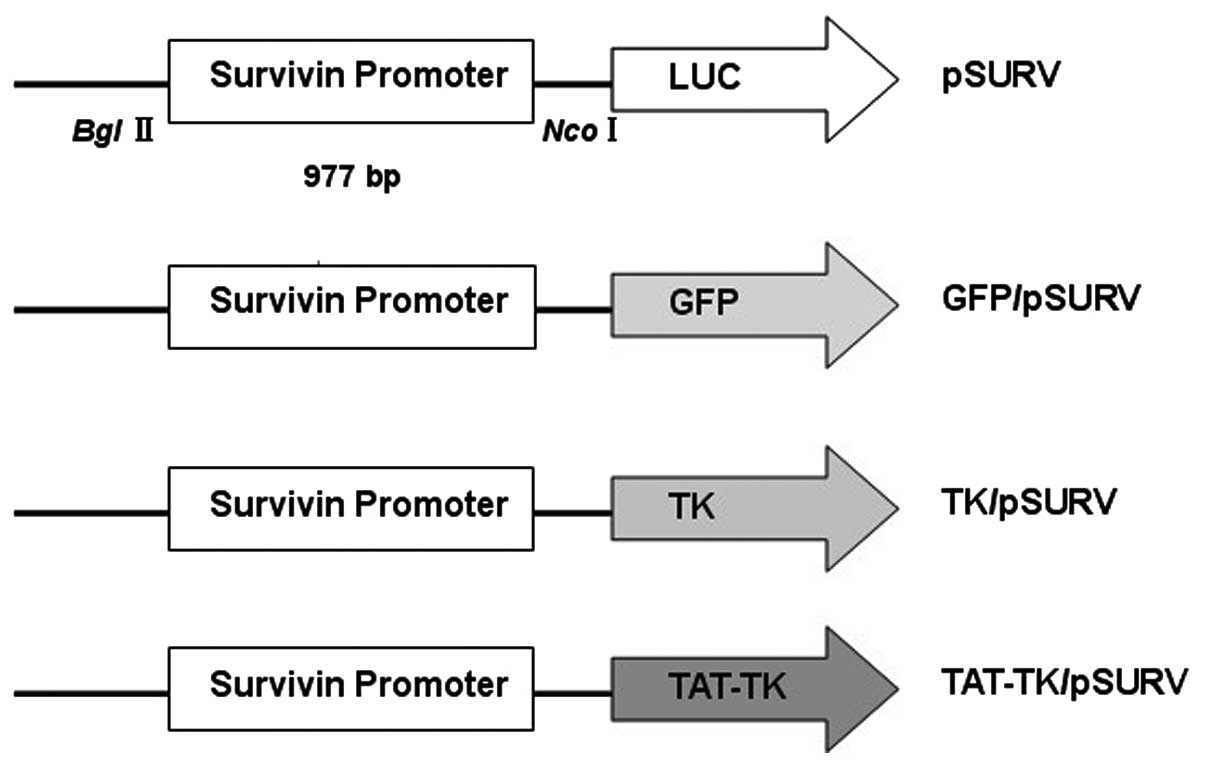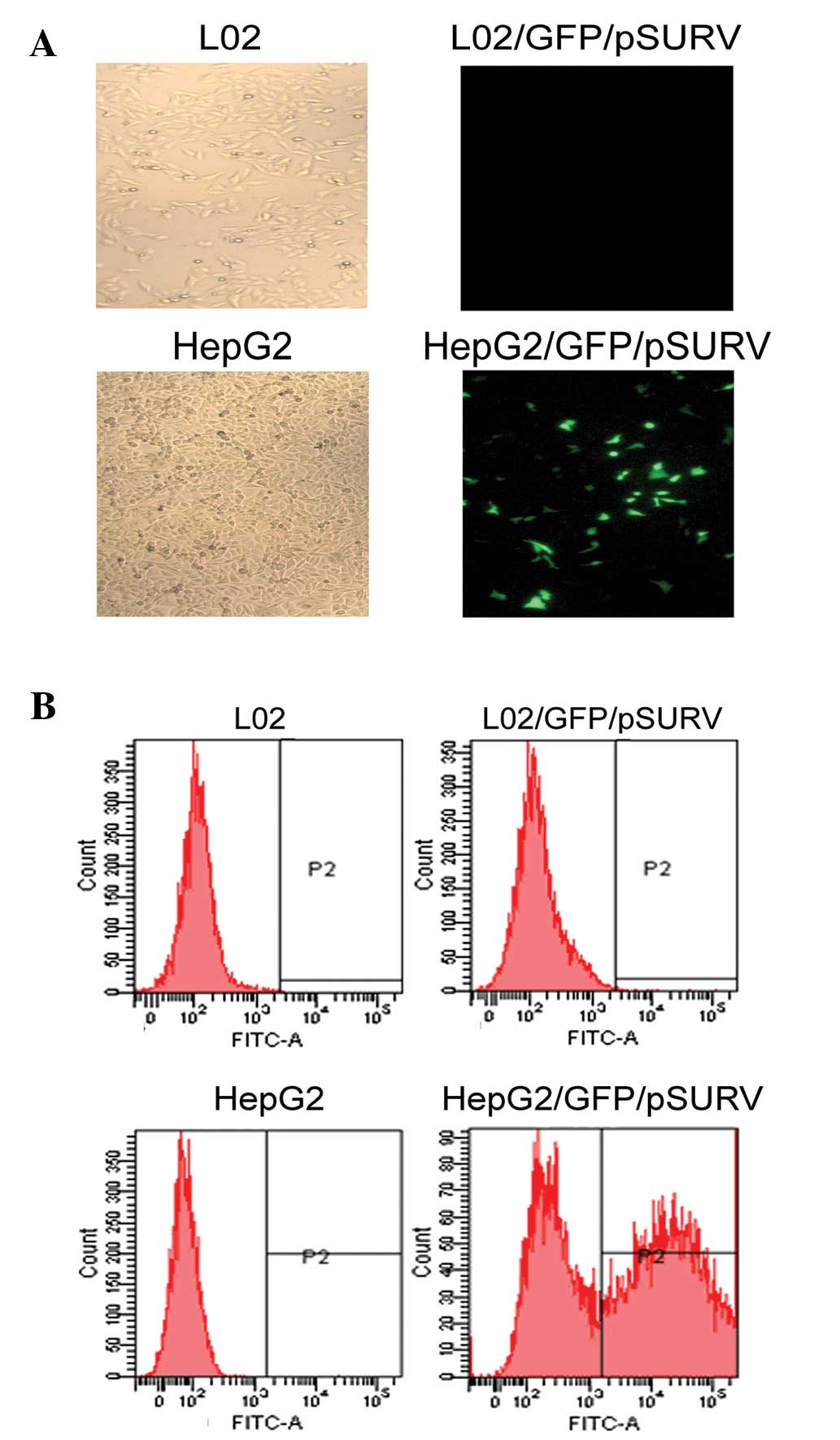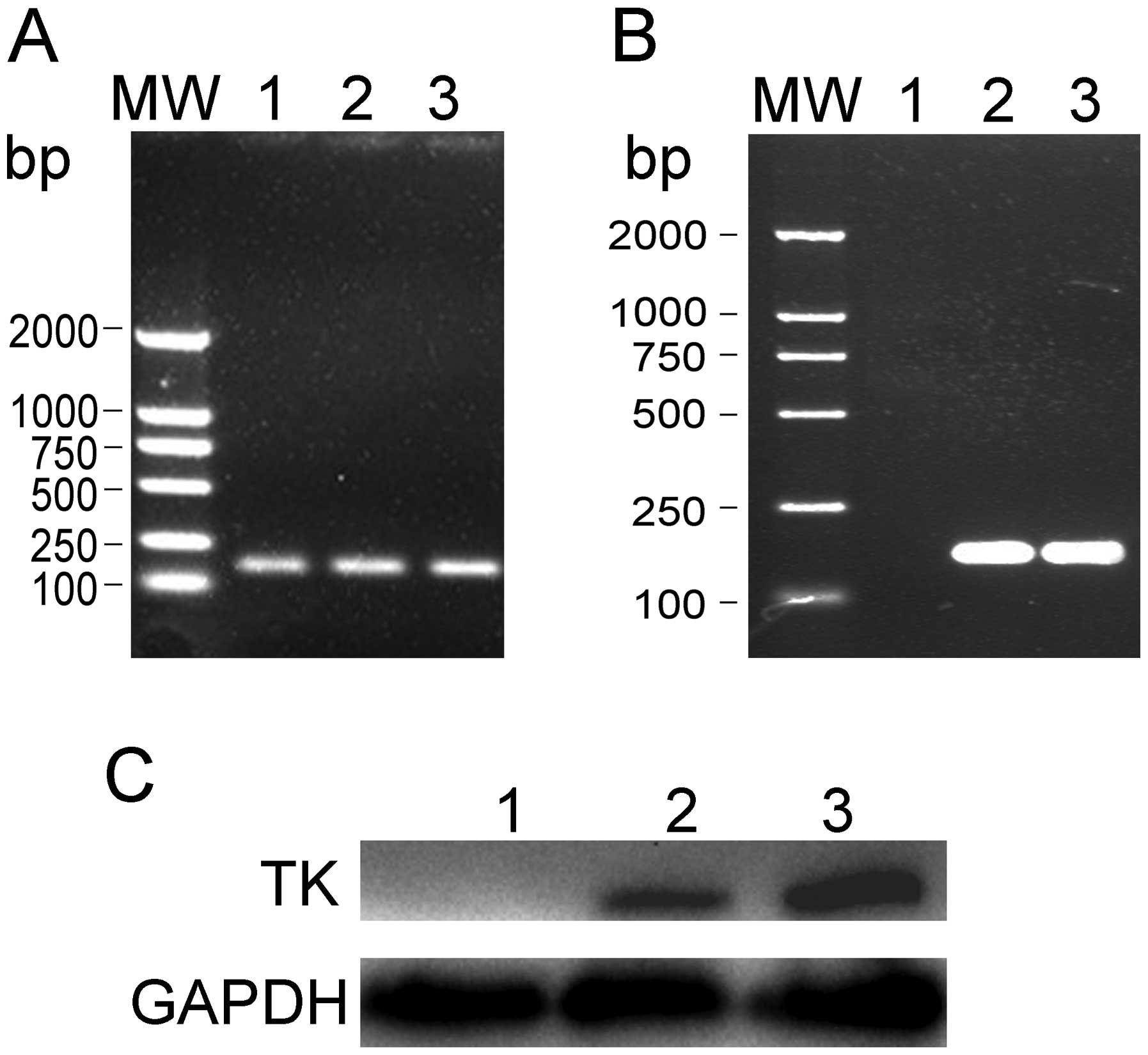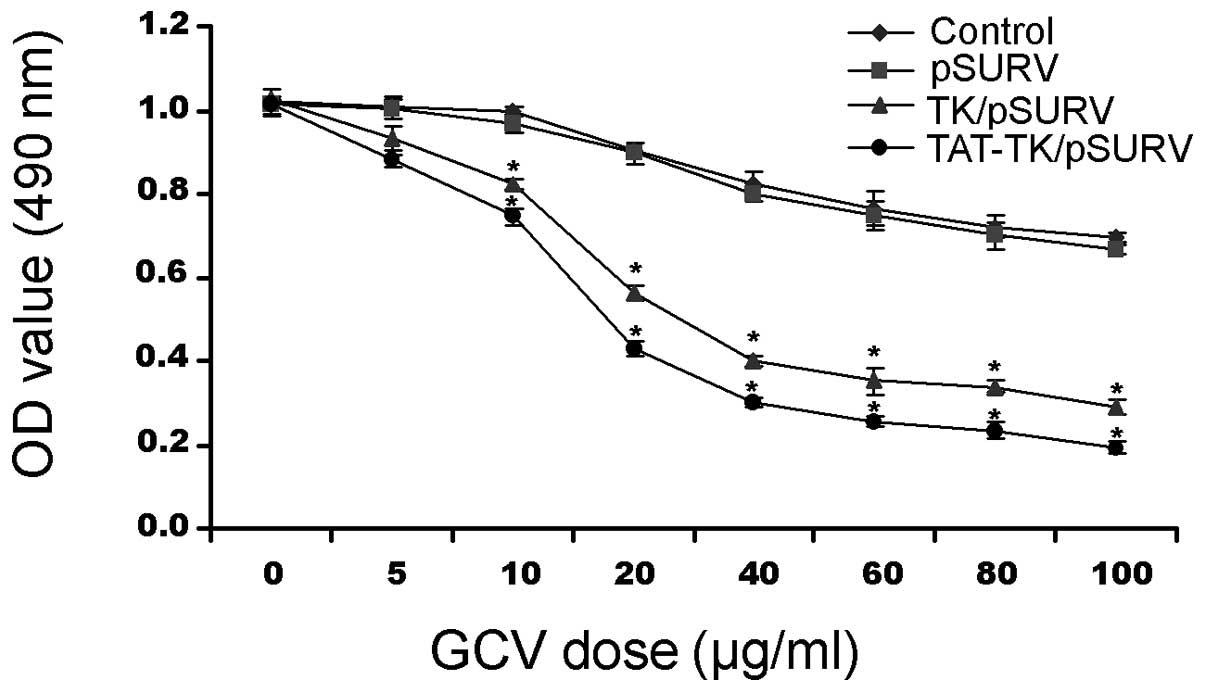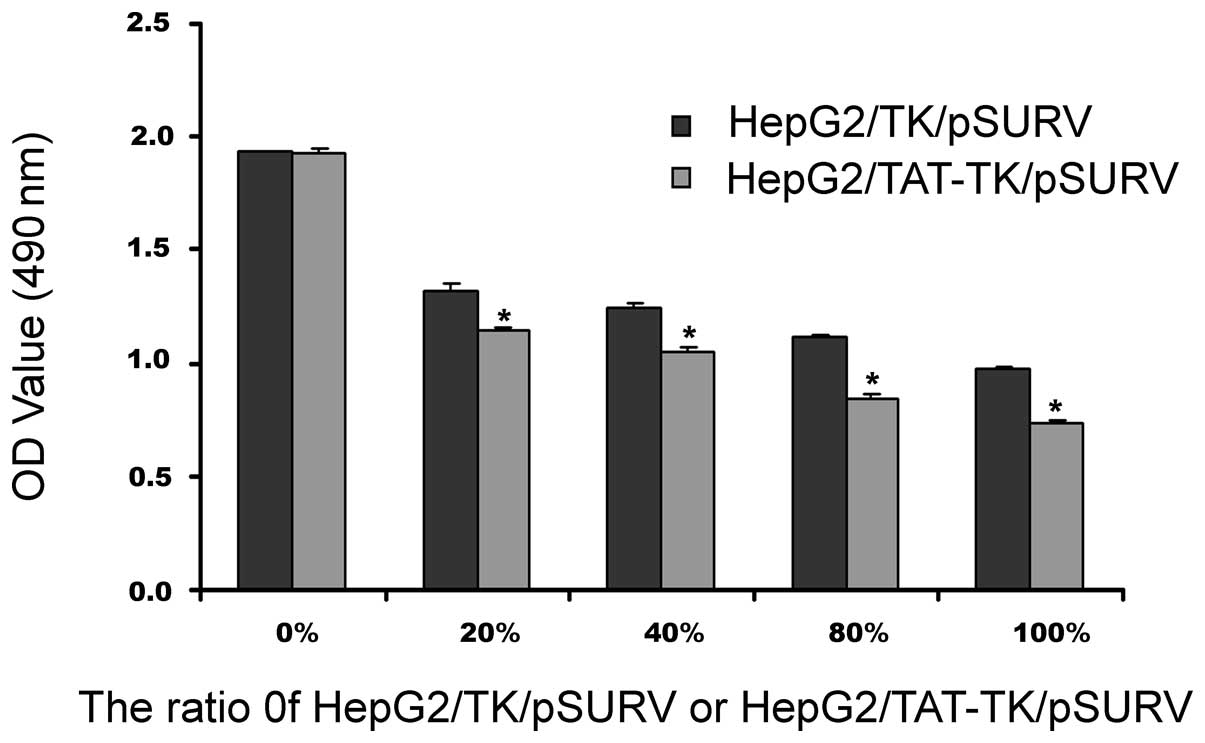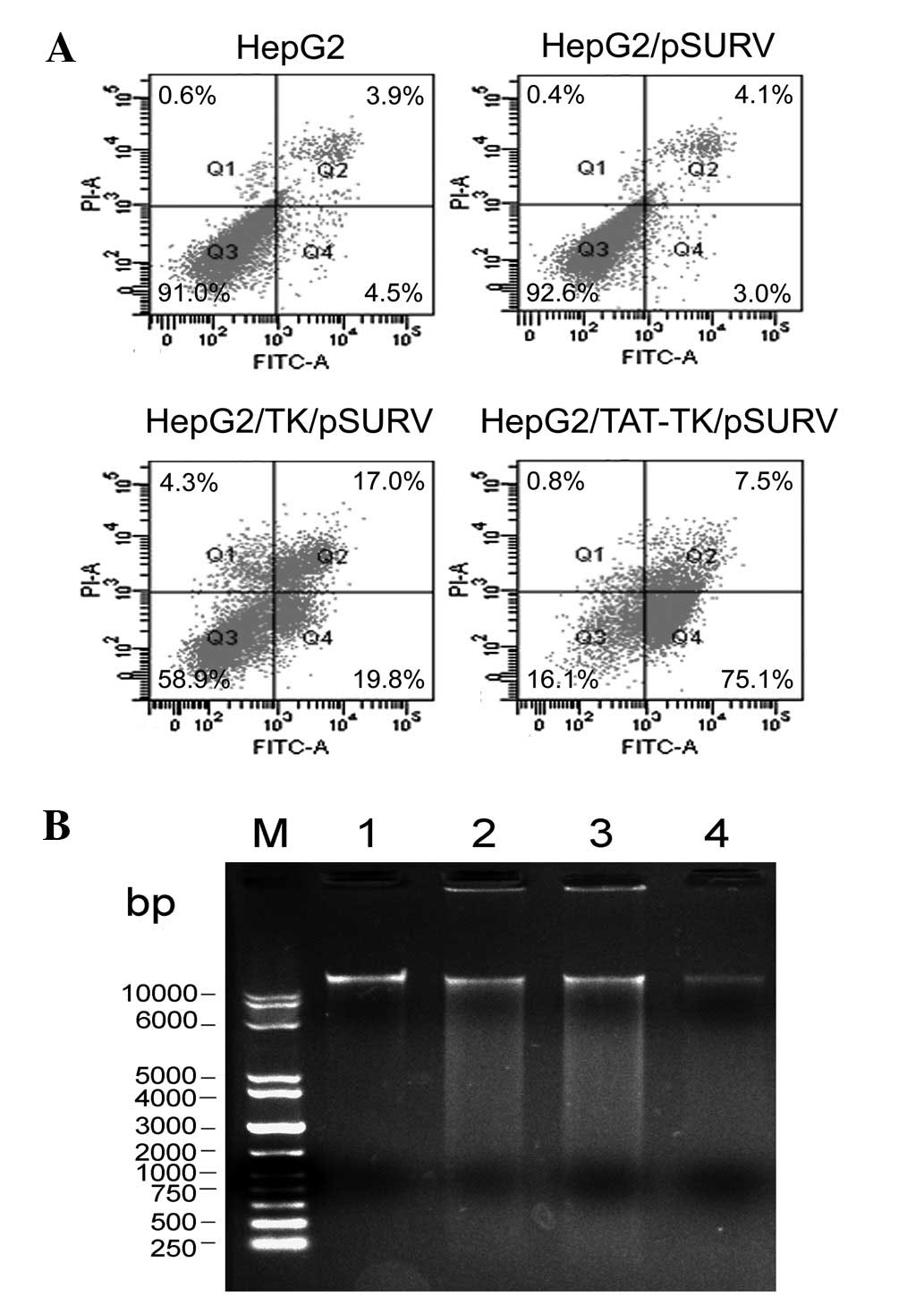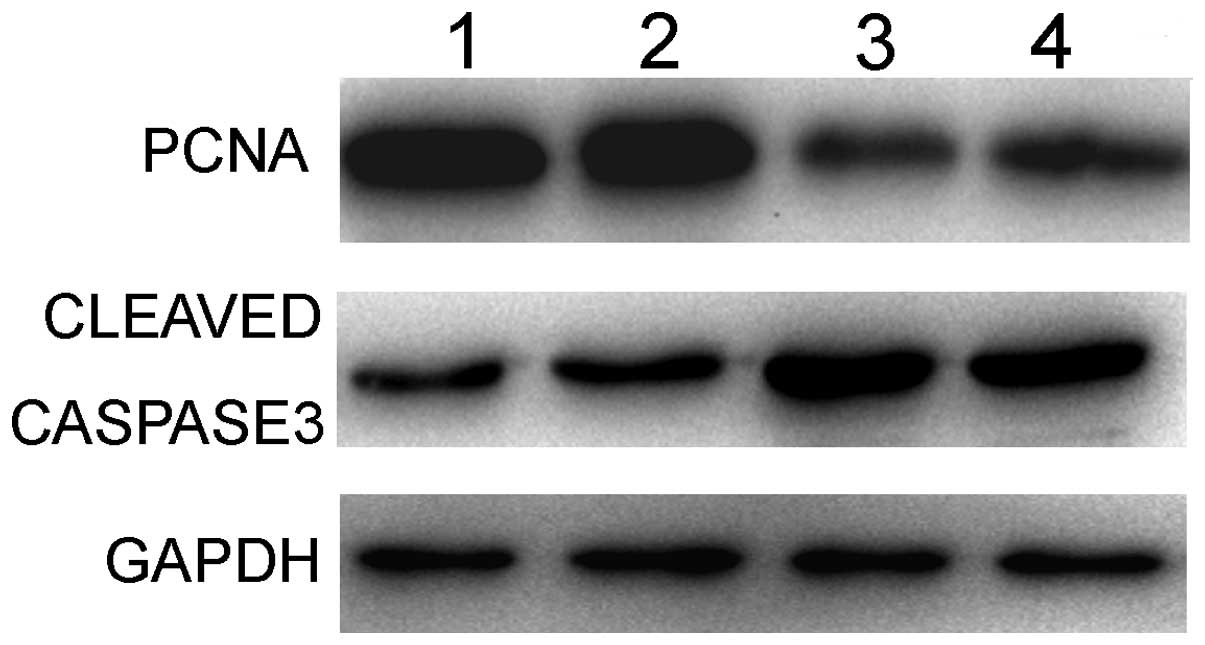|
1
|
Parkin DM, Pisani P and Ferlay J: Global
cancer statistics. CA Cancer J Clin. 49:33–64. 1999. View Article : Google Scholar
|
|
2
|
Okuda K: New trends in hepatocellular
carcinoma. Int J Clin Lab Res. 23:173–178. 1993. View Article : Google Scholar
|
|
3
|
Bruix J, Boix L, Sala M and Llovet JM:
Focus on hepatocellular carcinoma. Cancer Cell. 5:215–219. 2004.
View Article : Google Scholar
|
|
4
|
Llovet JM, Burroughs A and Bruix J:
Hepatocellular carcinoma. Lancet. 362:1907–1917. 2003. View Article : Google Scholar
|
|
5
|
Moolten FL: Tumor chemosensitivity
conferred by inserted herpes thymidine kinase genes: paradigm for a
prospective cancer control strategy. Cancer Res. 46:5276–5281.
1986.
|
|
6
|
Springer CJ and Niculescu-Duvaz I:
Prodrug-activating systems in suicide gene therapy. J Clin Invest.
105:1161–1167. 2000. View
Article : Google Scholar : PubMed/NCBI
|
|
7
|
Denny WA: Prodrugs for Gene-Directed
Enzyme-Prodrug Therapy (Suicide Gene Therapy). J Biomed Biotechnol.
2003:48–70. 2003. View Article : Google Scholar : PubMed/NCBI
|
|
8
|
Schepelmann S and Springer CJ: Viral
vectors for gene-directed enzyme prodrug therapy. Curr Gene Ther.
6:647–670. 2006. View Article : Google Scholar : PubMed/NCBI
|
|
9
|
Dietz GP and Bahr M: Delivery of bioactive
molecules into the cell: the Trojan horse approach. Mol Cell
Neurosci. 27:85–131. 2004. View Article : Google Scholar : PubMed/NCBI
|
|
10
|
Gratton JP, Yu J, Griffith JW, et al:
Cell-permeable peptides improve cellular uptake and therapeutic
gene delivery of replication-deficient viruses in cells and in
vivo. Nat Med. 9:357–362. 2003. View
Article : Google Scholar : PubMed/NCBI
|
|
11
|
Lehmusvaara S, Rautsi O, Hakkarainen T and
Wahifors J: Utility of cell-permeable peptides for enhancement of
virus-mediated gene transfer to human tumor cells. Biotechniques.
40:573–576. 2006. View Article : Google Scholar : PubMed/NCBI
|
|
12
|
Torchilin VP, Levchenko TS, Rammohan R,
Volodina N, Papahadjopoulos-Sternberg B and D’Souza GG: Cell
transfection in vitro and in vivo with nontoxic TAT
peptide-liposome-DNA complexes. Proc Natl Acad Sci USA.
100:1972–1977. 2003. View Article : Google Scholar : PubMed/NCBI
|
|
13
|
Li SD and Huang L: Targeted delivery of
siRNA by nonviral vectors: lessons learned from recent advances.
Curr Opin Investig Drugs. 9:1317–1323. 2008.PubMed/NCBI
|
|
14
|
Ambrosini G, Adida C, Sirugo G and Altieri
DC: Induction of apoptosis and inhibition of cell proliferation by
survivin gene targeting. J Biol Chem. 273:11177–11182. 1998.
View Article : Google Scholar : PubMed/NCBI
|
|
15
|
Altieri DC: Survivin, versatile modulation
of cell division and apoptosis in cancer. Oncogene. 22:8581–8589.
2003. View Article : Google Scholar : PubMed/NCBI
|
|
16
|
Ryan BM, O’Donovan N and Duffy MJ:
Survivin: a new target for anti-cancer therapy. Cancer Treat Rev.
35:553–562. 2009. View Article : Google Scholar : PubMed/NCBI
|
|
17
|
Blanc-Brude OP, Mesri M, Wall NR, Plescia
J, Dohi T and Altieri DC: Therapeutic targeting of the survivin
pathway in cancer: initiation of mitochondrial apoptosis and
suppression of tumor-associated angiogenesis. Clin Cancer Res.
9:2683–2692. 2003.PubMed/NCBI
|
|
18
|
Sah NK, Khan Z, Khan GJ and Bisen PS:
Structural, functional and therapeutic biology of survivin. Cancer
Lett. 244:164–171. 2006. View Article : Google Scholar : PubMed/NCBI
|
|
19
|
Ikeguchi M, Hirooka Y and Kaibara N:
Quantitative analysis of apoptosis-related gene expression in
hepatocellular carcinoma. Cancer. 95:1938–1945. 2002. View Article : Google Scholar : PubMed/NCBI
|
|
20
|
Chen JS, Liu JC, Shen L, et al:
Cancer-specific activation of the survivin promoter and its
potential use in gene therapy. Cancer Gene Ther. 11:740–747. 2004.
View Article : Google Scholar : PubMed/NCBI
|
|
21
|
Chen SH, Kosai K, Xu B, et al: Combination
suicide and cytokine gene therapy for hepatic metastases of colon
carcinoma: sustained antitumor immunity prolongs animal survival.
Cancer Res. 56:3758–3762. 1996.PubMed/NCBI
|
|
22
|
Kieback DG, Fischer DC, Engehausen DG, et
al: Intraperitoneal adenovirus-mediated suicide gene therapy in
combination with either topotecan or paclitaxel in nude mice with
human ovarian cancer. Cancer Gene Ther. 9:478–481. 2002. View Article : Google Scholar : PubMed/NCBI
|
|
23
|
Qiu Z, Harms JS, Zhu J and Splitter GA:
Bovine herpesvirus tegument protein VP22 enhances thymidine
kinase/ganciclovir suicide gene therapy for neuroblastomas compared
to herpes simplex virus VP22. J Virol. 78:4224–4233. 2004.
View Article : Google Scholar
|
|
24
|
Mizuguchi H and Hayakawa T: Enhanced
antitumor effect and reduced vector dissemination with
fiber-modified adenovirus vectors expressing herpes simplex virus
thymidine kinase. Cancer Gene Ther. 9:236–242. 2002. View Article : Google Scholar
|
|
25
|
Kagaya T, Nakamoto Y, Sakai Y, et al:
Monocyte chemoattractant protein-1 gene delivery enhances antitumor
effects of herpes simplex virus thymidine kinase/ganciclovir system
in a model of colon cancer. Cancer Gene Ther. 13:357–366. 2006.
View Article : Google Scholar
|
|
26
|
Altieri DC: Validating survivin as a
cancer therapeutic target. Nat Rev Cancer. 3:46–54. 2003.
View Article : Google Scholar : PubMed/NCBI
|
|
27
|
Li F and Altieri DC: Transcriptional
analysis of human survivin gene expression. Biochem J. 344:305–311.
1999. View Article : Google Scholar
|
|
28
|
Bao R, Connolly DC, Murphy M, et al:
Activation of cancer-specific gene expression by the survivin
promoter. J Natl Cancer Inst. 94:522–528. 2002. View Article : Google Scholar : PubMed/NCBI
|
|
29
|
Huang Q, Liu XZ, Kang CS, Wang GX, Zhong Y
and Pu PY: The anti-glioma effect of suicide gene therapy using
BMSC expressing HSV/TK combined with overexpression of Cx43 in
glioma cells. Cancer Gene Ther. 17:192–202. 2010. View Article : Google Scholar : PubMed/NCBI
|
|
30
|
Culver KW, Ram Z, Wallbridge S, Ishii H,
Oldfield EH and Blaese RM: In vivo gene transfer with retroviral
vector-producer cells for treatment of experimental brain tumors.
Science. 256:1550–1552. 1992. View Article : Google Scholar : PubMed/NCBI
|
|
31
|
Freeman SM, Abboud CN, Whartenby KA, et
al: The ‘bystander effect’: tumor regression when a fraction of the
tumor mass is genetically modified. Cancer Res. 53:5274–5283.
1993.
|
|
32
|
Touraine RL, Ishii-Morita H, Ramsey WJ and
Blaese RM: The bystander effect in the HSVtk/ganciclovir system and
its relationship to gap junctional communication. Gene Ther.
5:1705–1711. 1998. View Article : Google Scholar : PubMed/NCBI
|
|
33
|
Merilainen O, Hakkarainen T, Wahlfors T,
Pellinen R and Wahlfors J: HIV-1 TAT protein transduction domain
mediates enhancement of enzyme prodrug cancer gene therapy in
vitro: a study with TAT-TK-GFP triple fusion construct. Int J
Oncol. 27:203–208. 2005.PubMed/NCBI
|
|
34
|
Vives E, Brodin P and Lebleu B: A
truncated HIV-1 Tat protein basic domain rapidly translocates
through the plasma membrane and accumulates in the cell nucleus. J
Biol Chem. 272:16010–16017. 1997. View Article : Google Scholar
|
|
35
|
Schwarze SR and Dowdy SF: In vivo protein
transduction: intracellular delivery of biologically active
proteins, compounds and DNA. Trends Pharmacol Sci. 21:45–48. 2000.
View Article : Google Scholar : PubMed/NCBI
|
|
36
|
Bremner KH, Seymour LW and Pouton CW:
Harnessing nuclear localization pathways for transgene delivery.
Curr Opin Mol Ther. 3:170–177. 2001.PubMed/NCBI
|
|
37
|
Cao L, Si J, Wang W, et al: Intracellular
localization and sustained prodrug cell killing activity of
TAT-HSVTK fusion protein in hepatocelullar carcinoma cells. Mol
Cells. 21:104–111. 2006.PubMed/NCBI
|















